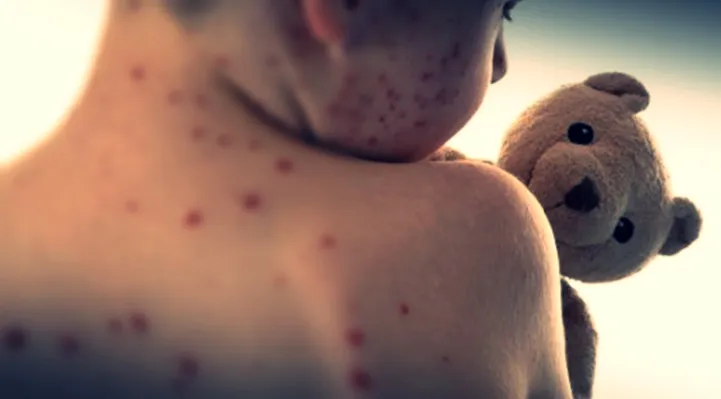Has Mongolia's Confirmed Measles Cases Exceeded 3,000?

Synopsis
Key Takeaways
- Mongolia's confirmed measles cases have exceeded 3,000.
- 114 new cases were reported in a single day.
- Health officials recommend two doses of the measles vaccine for children.
- Measles is highly contagious and can lead to severe complications.
- Immunization is the best preventive measure against measles.
Ulan Bator, May 24 (NationPress) Mongolia has reported 114 additional cases of measles in the last 24 hours, raising the total confirmed cases to 3,042, as stated by the National Centre for Communicable Diseases (NCCD) on Saturday.
Moreover, 95 more patients have successfully recovered from the illness, increasing the recovery total to 1,904, according to the NCCD's announcement.
Mongolian health professionals indicate that more than half of the recent confirmed cases involve school-aged children who received only a single dose of the measles vaccine.
In response, the NCCD has urged parents to safeguard their children against this potentially serious illness by ensuring they receive two doses of the measles vaccine.
Measles is an exceptionally contagious viral illness that spreads through respiratory droplets and direct contact, as reported by the Xinhua news agency.
Typical complications include fever, dry cough, runny nose, sore throat, and inflamed eyes. Immunization is the most effective preventive measure against this disease.
The World Health Organisation indicates that measles can lead to severe health issues, complications, and even fatalities, particularly among children.
The virus primarily infects the respiratory system and can spread throughout the body. Symptoms encompass high fever, cough, runny nose, and a widespread rash.
Any individual lacking immunity (either unvaccinated or vaccinated but without developed immunity) is susceptible to infection. Unvaccinated young children and pregnant women face the highest risk of severe complications.
Vaccination remains the most reliable method for preventing measles infections and limiting transmission. The vaccine is deemed safe and aids the body in combating the virus.
Prior to the measles vaccine's introduction in 1963, major outbreaks occurred roughly every two to three years, resulting in around 2.6 million deaths annually.
In 2023, approximately 107,500 individuals, predominantly children under five, succumbed to measles despite the availability of effective vaccines.
In 2023, around 74 percent of children received both doses of the measles vaccine, while approximately 83 percent of children globally received their first dose by their first birthday.
To ensure immunity and avert outbreaks, it is recommended that children receive two doses of the vaccine, as not all children achieve immunity from the initial dose.









